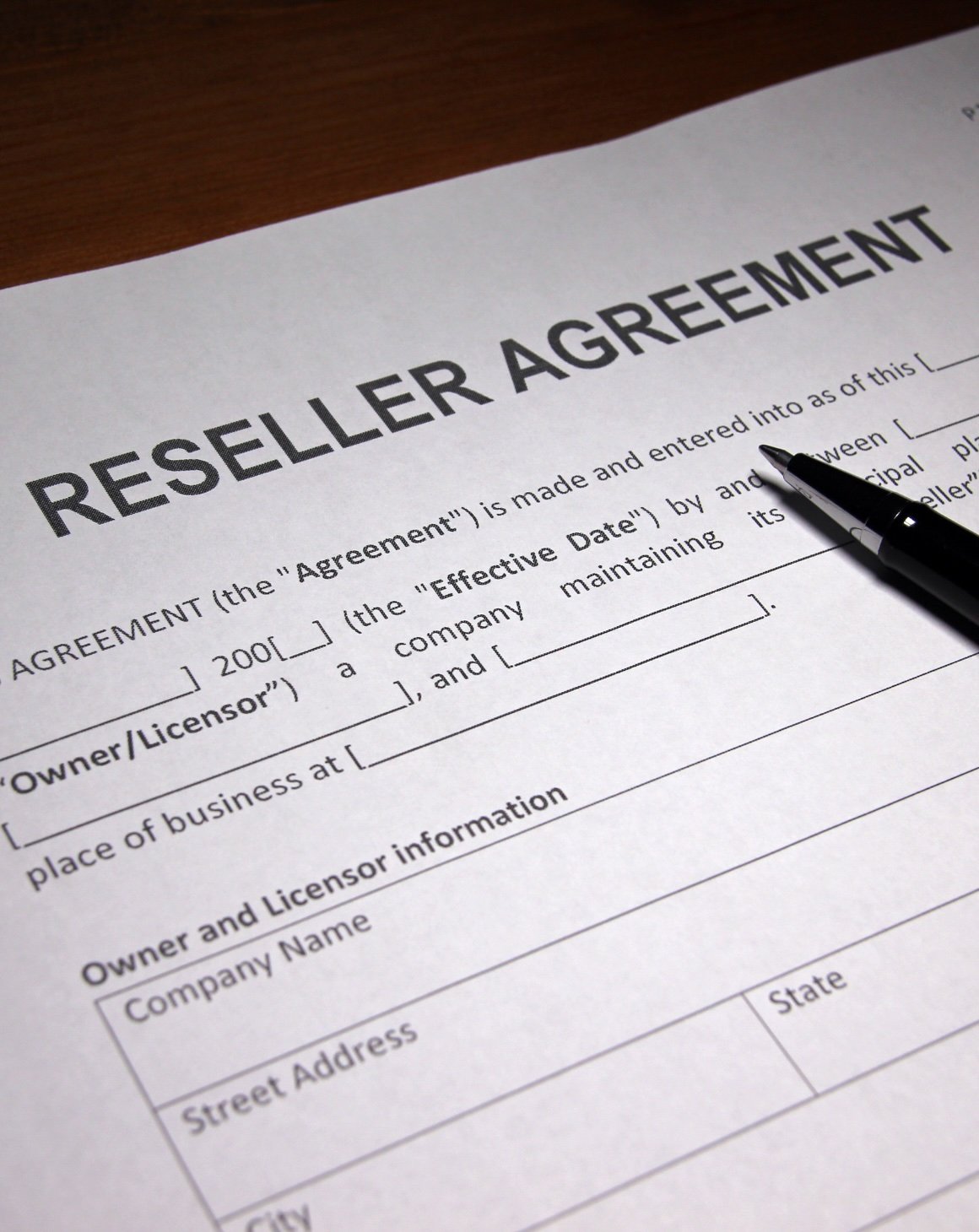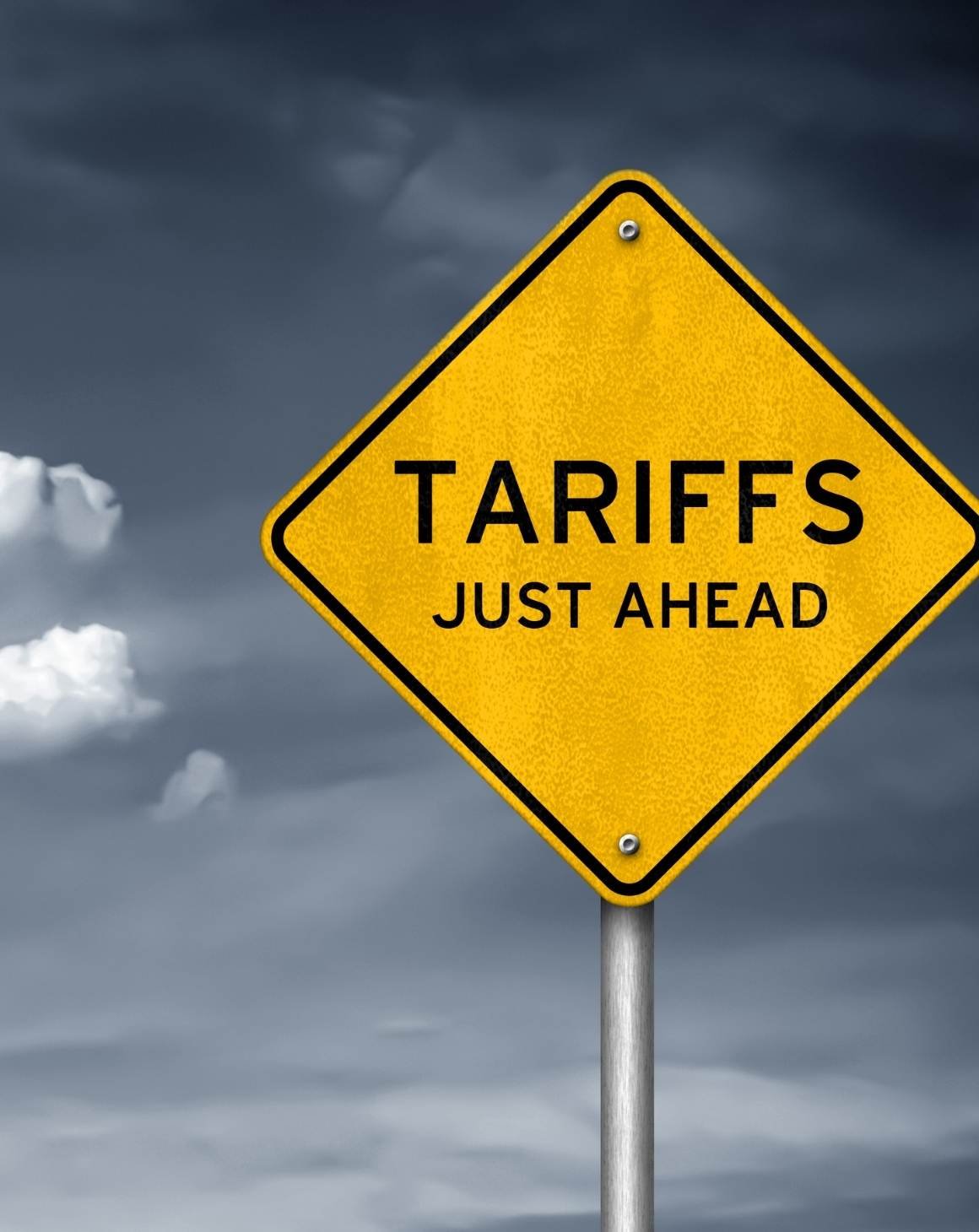Is a Reseller Agreement Really Necessary?
In working with brands on the creation of legitimate and enforceable reseller programs, we often get asked the “why” of what we recommend. It is certainly a fair question and one that is only becoming more crucial as the growth of ecommerce continues. The conversation typically goes something like this:
Blue Wheel: “We recommend establishing reseller agreements with those resellers you deem as ‘authorized.’”
Client: “Over the years we have gained so many resellers. Is it really necessary to have individual agreements? This could be quite the task to gather their individual consents.”
In addition to the inherent protections that come with having a solid reseller program that differentiates authentic brand products sold through approved channels from grey market sales, the answer to this question is simply, “yes.”
But why? There are a few levels or, more accurately, tiers as to the “why” when it comes to carefully crafting a reseller program.
What Exactly is a Reseller Agreement?
A reseller agreement is a legally binding contract between a supplier or manufacturer and a reseller. This agreement delineates the terms, conditions, and rights governing the relationship between the two parties. The essence of a reseller agreement lies in enabling a third-party entity, the reseller, to market, distribute, and sell products or services on behalf of the supplier.
Importance of Reseller Agreements
- Reseller agreements hold substantial importance for businesses engaged in product distribution or service provision. They serve as the foundation for a symbiotic relationship between suppliers and resellers, offering numerous benefits:
- Clarity and Understanding: Reseller agreements establish clear guidelines and expectations, preventing misunderstandings and disputes by defining roles, responsibilities, and limitations for both parties.
- Legal Protection: These agreements offer legal protection by outlining terms related to sales, pricing, distribution territories, intellectual property rights, warranties, liabilities, and dispute resolution mechanisms.
- Risk Mitigation: By addressing potential risks associated with product distribution, reseller agreements help mitigate legal conflicts and financial losses for both the supplier and the reseller.
- Maintaining Brand Consistency: Suppliers can ensure consistency in their brand representation, quality standards, and customer service by stipulating guidelines within the agreement.
- Market Expansion: Reseller agreements facilitate market expansion by leveraging the reseller's networks and expertise, enabling suppliers to reach new customers or markets.
Enforceability of a Reseller Program
Dissecting the Terms of Service
Actual confirmation of an agreement goes a long way in enforceability – For better or for worse, it is now commonplace for courts to uphold what are often called “click wrap” agreements.
We’ve all seen these (and “signed” them). Think of Apple iTunes or Gmail. When you click on the “I agree” or the “I accept” button after a company’s posted terms and conditions, you are indicating your assent to those provisions. Of course, we know that an extremely small percentage of the people who click that button have actually read all—if any—of the terms provided.
Still, when these agreements are upheld, which is, again, not all of the time (courts look at many variables in instances where these are challenged such as the sophistication of the signer, the signer’s occupation, the length and clarity of the terms, etc.), they are upheld not necessarily because the signer read the terms but because he or she had the opportunity to read the terms and proceed to either click or not click “I agree.” This step of providing the signer an opportunity to review and either approve or disapprove the terms is significant in arguing for the enforceability of a contract.
Configuration of contracts
Enforceability of a policy or terms without confirmation of agreement or assent – Some companies utilize or inquire about the “browse-wrap” agreements. The scenarios attempt to form an enforceable contract between the website user and the company through the user’s behavior (i.e. “use” of the site or purchase of the product).
While there is some ambiguity surrounding click-acceptance (as explained above), there is even less case law addressing these browse-wrap approaches. Like many legal topics, these disputes would hinge primarily on the facts of the individual case. How are the terms displayed? What type of notice was provided to the user? Was the wording unambiguous and clear? That being said, it is extremely rare to have an instance in which solely posting terms at a link on the company’s website is enforced against a user who was not provided notice of the terms in some additional manner (such as a physical letter or multiple forms of exposure throughout the website browsing process).
In the context of a reseller program specifically, we would add that this approach makes it all the more unrealistic to a court that your brand is serious about enforcing quality controls and oversight with authorized resellers—simply allowing anyone to purchase the goods and alleging that you will follow-up to continue checking on their presentation, product handling, service, etc. could prove to be difficult in combatting grey market sellers who are, in general, permitted to sell your trademarked product under the First Sale Doctrine.
Importance of crafting your reseller agreement
Even with a reseller agreement, how it is crafted is important to its enforceability – Whether using a “click-wrap” agreement (to which more scrutiny will be applied) or a traditional paper contract, you still must be careful in crafting the provisions of the contract.
Just because a reseller clicks or signs your agreement, it does not mean that anything and everything provided within that document will be enforceable. If you have terms, such as insanely high interest rates, that are contradictory to public policy, these will be void when tried before a court. Similarly, any terms that are “unconscionable” will not be enforceable. You might be wondering, “What is defined as ‘unconscionable?’”
Good question. While one common example is a company requiring that a signer waive his or her rights to participate in a class action, a complete list of these types of terms is extremely difficult to create as it is argued on a case-by-case basis. To be safe, if there are terms in your agreement that “shock your conscience” and cause you to lose sleep at night, get out your red pen.
Key components of a Reseller Agreement [Checklist]
Creating a comprehensive reseller agreement involves several key components that are crucial for both parties involved.
- Identification of Parties: The agreement should clearly identify the supplier and the reseller, including their legal names, contact information, and any relevant business identifiers.
- Scope of Resale Rights: This section specifies the rights granted to the reseller, such as the geographic territory in which they can sell the products or services, the duration of the agreement, and any exclusivity terms.
- Product/Service Details: Detailed descriptions of the products or services being resold, including specifications, pricing, and any limitations on modifications or alterations, should be clearly outlined.
- Pricing and Payment Terms: This component covers the pricing structure, payment terms, discounts, commissions, and any applicable taxes or fees. It's essential to specify how payments will be made and when they are due.
- Terms of Sale: This section defines the terms of the reseller's sales process, including warranties, returns, and customer support responsibilities.
- Intellectual Property Rights: Address the intellectual property rights associated with the products or services being resold, including trademarks, copyrights, and any licensing arrangements.
- Confidentiality and Non-Disclosure: Both parties must agree to maintain confidentiality regarding sensitive information shared during the course of their business relationship.
- Termination and Renewal: Clearly state the conditions under which the agreement can be terminated, including reasons for termination and any notice periods. Additionally, outline any provisions for renewal or extension of the agreement.
- Dispute Resolution: Establish a framework for resolving disputes, whether through arbitration, mediation, or litigation, to avoid costly legal battles in case of disagreements.
Crucial considerations when drafting a reseller agreement
When drafting a reseller agreement, several critical considerations can help ensure the agreement protects the interests of both the supplier and the reseller:
- Clarity and Specificity: Use clear and unambiguous language to avoid misunderstandings or misinterpretations. Define terms, obligations, and expectations explicitly.
- Legal Review: Seek legal counsel experienced in contract law to review the agreement. This ensures legal compliance and addresses any potential loopholes or risks.
- Flexibility and Adaptability: Allow for flexibility in the agreement to accommodate changes in market conditions, technological advancements, or other unforeseen circumstances.
- Fairness and Equitability: Ensure that the terms and conditions of the agreement are fair to both parties and that neither party is unfairly advantaged or disadvantaged.
- Regular Review and Updates: Periodically review and update the agreement to reflect changes in business practices, market dynamics, or legal requirements.
Well-crafted reseller agreement serves as a foundation for a successful business relationship between a supplier and a reseller. By incorporating these key components and considering crucial aspects during the drafting process, both parties can mitigate risks and foster a mutually beneficial partnership.
How can Blue Wheel help?
If you have questions about the structure of your reseller program and related policies or agreements (such as MAP policies or online selling agreements), we are happy to help. As part of our services, we always remind clients to review and discuss the documents on which we advise with their company’s attorney. Looking for a brand protection partner? Request a consultation with Blue Wheel today.








.png)
.png)
